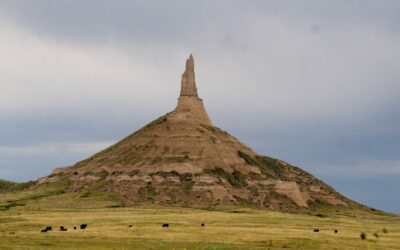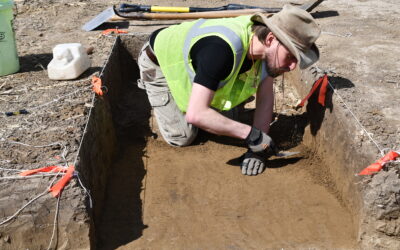The 1870s are remembered as grasshopper years in Nebraska, although the insects visited the state on a number of occasions over the years since 1857, doing more or less damage. The greatest of all grasshopper raids came on July 20, 21, and 22, 1874. Migratory swarms from the Great Plains invaded the settled portions of the state in the summers of 1875 and 1876 but never in such multitudes as in 1874. Whole areas of the state were devastated by the hungry hordes. Nebraska newspapers during these years tried to preserve the reputation of the state to avoid discouraging immigration, but unfavorable reports soon reached publications in the East. Everett Dick’s Conquering the Great American Desert, published by the Nebraska State Historical Society in 1975, included a letter from “F.N.C.” of Buffalo County, Nebraska, to the Country Gentleman, one of America’s foremost rural magazines, giving a realistic picture of an 1876 grasshopper raid:
“At 4 p.m. the east, the north, the west, presented the appearance of dense clouds of smoke, like that of burning prairies. We saw it full 20 miles away. We gazed in wonder. The clouds approached, the air swarmed with hoppers. We could hear the sound of their wings. They were so close together, so dense, that they darkened the sun similar to an eclipse at midday. The first cloud passed. At 5 p.m. another, more dense, more terrible, more numerous passed over head, leaving a few stragglers to search for something to stay their stomachs.
“We thought by this time, surely the army had passed, but about 6 p.m. another writhing, moving mass was seen approaching. On its arrival just over our heads, down they came like huge flakes of snow, so thick that the ground was in many places invisible. Here they remained till the next morning, scattered over the prairies. . . . and by 1 p.m. every leaf, ear, and in many places stalks, were eaten, digested, and part of the army on their way southwest to hunt for and despoil new fields.”
The writer then advised prospective immigrants to think carefully about coming to Nebraska: “I do not think that any of my near neighbors will complain or take me to task if I again say that a poor man with a family, and but little means, should think twice before attempting to make a home especially in Western Nebraska, for by the time this is in print no less than eight out of twelve families living near to the north and west of me will be on the way to Iowa and Missouri-some having already departed for the Pacific slope. Some are selling their claims and all their stock for less than half their value, while others are leaving their claims to hoppers, and to settlers desiring to try their luck. Many of my readers may think over in their minds the old adage that ‘a rolling stone gathers no moss,’ but permit me to ask a question: How much moss can a stone gather when visited continuously by drouth, bugs, and hoppers?”



